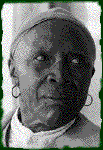|
1619
|
The first African slaves are brought to America.
|
| 1777-1820
| Northern states abolish slavery.
|
| 1807 |
The slave trade from Africa to the United States ends. |
| 1831 |
Nat Turner's slave revolt. |
| 1852 |
The publication of Harriet Beecher Stowe's Uncle Tom's Cabin,
which depicts the horrors of slavery for a wide readership. |
| 1857 |
The Dred Scott decision rules that the new western territories
have no right to prohibit slavery. |
| 1860 |
Abraham Lincoln is elected president on a Republican platform
opposed to slavery; in response, most southern states secede by
early 1861. |
| 1861 |
The Civil War begins at Fort Sumter, South Carolina. |
| 1863 |
Lincoln issues the Emancipation Proclamation, declaring all
slaves free in Confederate territory and enlisting African
Americans in the military. |
| 1865 |
The Confederacy is defeated and the Civil War ends. The 13th
Amendment ending slavery is ratified. |
| 1866 |
Congress passes the 14th Amendment, granting African American
men citizenship and protecting their civil rights. |
| 1867 |
Congress passes the Reconstruction Acts, dividing the South into
five military districts and giving African American men the right to
vote. |
| 1870 |
The 15th Amendment, prohibiting states from denying the right to
vote on the basis of race, is ratified. |
| 1877 |
Rutherford B. Hayes becomes president and ends
Reconstruction. |
| 1877 |
Thomas Edison invents the phonograph. |
| 1898 |
Valdemar Poulsen of Denmark invents the magnetic wire
recorder, the precursor to the modern tape recorder. |
| 1920s |
Scholars and historians, particularly from African-American
colleges, begin interviewing former slaves. |
| 1936-1938 |
As part of a larger project of collecting first-hand biographies of
ordinary American people, the New Deal's Federal Writers'
Project begins interviewing thousands of former slaves. |
| 1930s-1940s |
A second group of scholars (including John, Ruby and Alan
Lomax, Zora Neale Hurston, and John Henry Faulk), inspired by
the Federal Writers' Project but working independently, begins
tape-recording the spoken words of former slaves. |
| 1960s |
The Civil Rights Movement sparks a growing interest in slavery
and slave narratives. |
| 1990s |
New technology enables the old, aluminum disks upon which the
original interviews with former slaves were recorded to be
"remastered," vastly improving the quality and audibility of the
recordings. |
